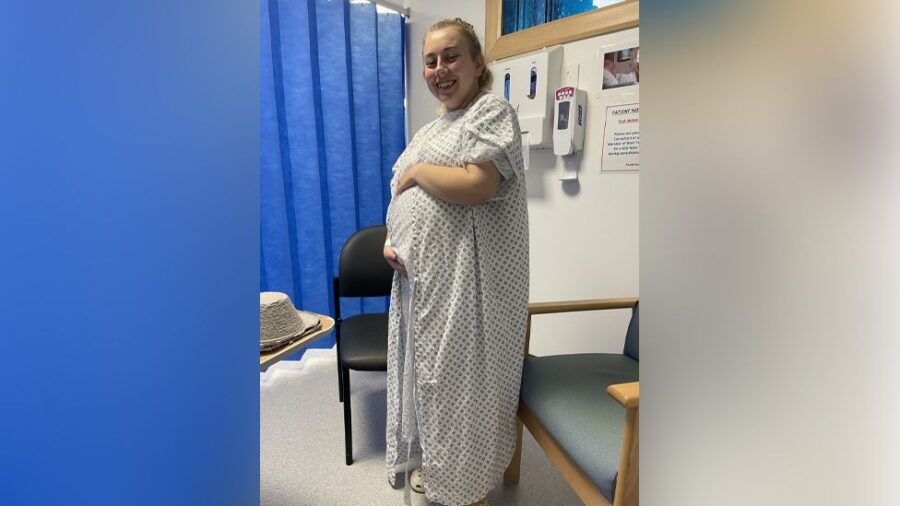The initial diagnosis, linked to the fact of being “hypothetically” pregnant, was totally off the mark. The discovery was shocking to say the least.
Emma Colledge, a young 24-year-old English woman, went through a dramatic experience to say the least that turned her life upside down. In February 2022, she noticed a swelling of her belly and an increase in urinary frequency, “typical” situations of a pregnant woman. Concerned, she consulted her primary care doctor, thinking of an allergy or irritable bowel syndrome. Her symptoms continued unabated and her belly continued to grow.
As Emma told the 'BBC', her young age made her an atypical case and there wasn't really a clearly identifiable pathology. In short, as far as external opinions of her were concerned, she could only be pregnant.
I would Google my symptoms and it would always tell me that ovarian cancer is mostly found in people aged 50 and older.

His GP didn't suspect anything too serious. In May, after a visit, he also told her that she was pregnant with him. Emma, aware that she was not, underwent a pregnancy test which confirmed her feeling: in fact, she was not pregnant.
An appointment was then made for further tests, but the abdominal pain became too intense. Emma was forced to go to the emergency room. An ultrasound revealed the presence of a 30cm cyst and the diagnosis was shocking. It is a ovarian cancer.
Emma had to face two long ones surgical interventions. The first to remove the cyst and the affected ovary, the second, more complex, lasted over nine hours and included the hysterectomy, removal of the appendix, spleen and part of the intestine. Due to this last operation, Emma had to resort to a stoma.
To reduce the risk of recurrence, the young woman underwent cycles of chemotherapy at the Teenage Cancer Trust unit at Newcastle's Freeman Hospital. The last treatment was last year and since then tests have shown no signs of the cancer returning.

Given the increase in cases of ovarian cancer among young women, Emma decided to share her dramatic experience raise awareness on the topic. The woman strongly wanted to encourage women to know the symptoms of this pathology. The initial diagnosis, linked to the fact that she was hypothetically pregnant, was totally off the mark. Pain in the pelvis and stomach, feeling of rapid satiety and bloating are some of the signs not to be underestimated. The Teenage Cancer Trust highlights:
Knowing the signs of ovarian cancer is definitely a good idea, but remember that other less serious conditions can also cause these symptoms.
#doctors #pregnant #case #diagnosis #year #unexpected
